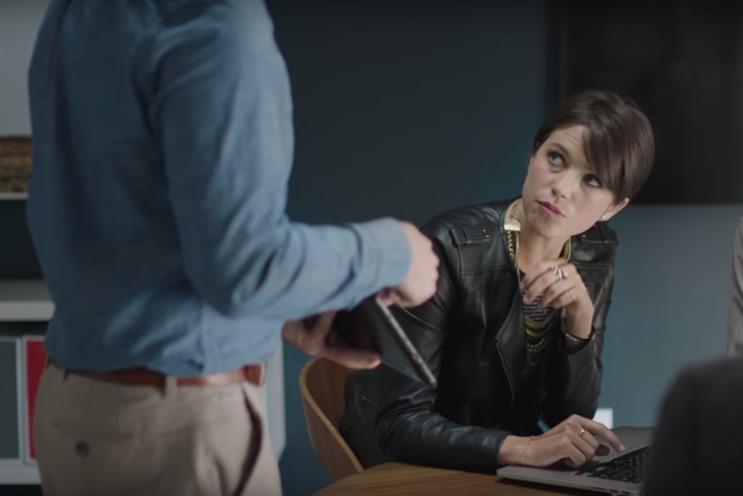A software developer in the US has brought out a that notifies users when they use apologetic words in emails.
It is targeted at women, because they are apparently a very sorry bunch.
The plugin seeks to empower women by automatically highlighting words that it deems ‘undermining’ as you write them. So the sentence "Sorry, I’m no expert on women" would look like this: "Sorry, I’m no expert on women."
It’s not the first time women have collectively been told to stop being so pathetic. Last year Pantene devoted a shampoo ad to just that. In case you missed it, the general message of the brand’s "Shine Strong" campaign was: ladies, we can give you sleek shiny hair, but if it’s empowerment you want, quit saying sorry all the bloody time."
The ad racked up the YouTube views but wasn’t as well received as those behind it would have hoped. Predictably, many viewers deemed it rather condescending.
What I’d like to know is: where is the evidence to suggest that women have the monopoly on apologising? What about the myriad factors that could influence a person’s choice of words, such as individual characteristics, the audience being addressed, background or culture?
Not just women
The cultural factor was explored by social anthropologist Kate Fox in her book, ‘Watching the English’.
Fox actually bumped into people on purpose to test the nation’s reputation for courtesy, and propensity for apologising. Some 80% of her victims said sorry when she barged into them, even though the collisions weren’t their fault. The people who needlessly apologised were both men and women - she made sure her targets were a cross-section of the population. She did the same experiment on other nations but only the Japanese came close to rivalling the English for their sorry reflex.
In addition to casting all women as mousy nervous wrecks, brands are doing their best to turn ‘sorry’ into a bad word.
Neither the Pantene campaign nor the Just Not Sorry app take context into account. Using apologetic language isn’t necessarily an indication of weakness. As well as politeness, it can be an expression of empathy, or just a way of easing a difficult or awkward situation.
The creator of the Just Not Sorry plugin, Tami Reiss, the chief executive of Cyrus Innovation, is encouraging women to sign a pledge which says: "In 2016, I will be a more effective communicator. I will not use ‘just’ or ‘sorry’ in emails, which undermine my message. I will talk about what I know, not what ‘I think’."
Women have been belittled enough over the ages, without having to endure this nonsense. Sorry, but brands and companies who sell ‘empowerment’ by promoting female stereotypes are the ones who should be apologising.


